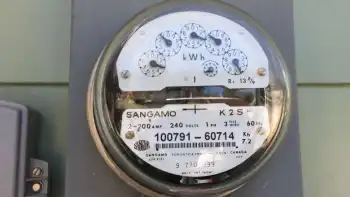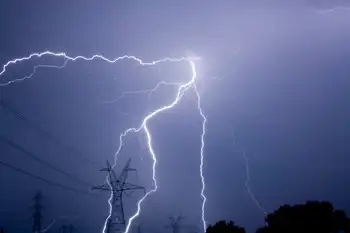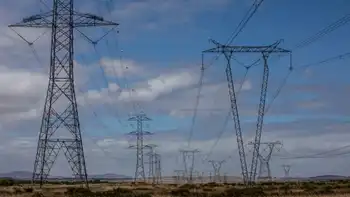Forced outage does not disrupt electrical service in Ontario
TORONTO, ONTARIO - The lights stayed on as 1,000 Hydro One employees staged a one-day walkout May 25 to protest contract concessions demanded by the province's electricity distributor.
The employees, many of whom make more than $100,000 a year, set up picket lines outside the Pickering Nuclear Generating Station and on Bay St. outside Hydro One's Trinity Square headquarters.
Pickets tied up traffic along Bay St. as they delayed vehicles going in and out of the Trinity Square parking and truck loading area.
The employees — including engineers, customer service representatives, scientists, computer specialists — say Hydro One wants to create a two-tier pay structure and require them to work four more hours a week for the same money.
Keith Rattai, vice-president of the Hydro One local of the Society of Energy Professionals, said the strike was designed to get the attention of the province and Hydro One.
"We want them to know that we mean business and that we want to return to the bargaining table for meaningful negotiations," he told a news conference at Trinity Square.
Hydro One spokesman Peter Gregg said the protest did not disrupt hydro service.
"No one had to do without power because of this job action," Gregg said. "We had a contingency plan in place using trained management workers that worked very well."
The workers called the strike a "forced outage" prompted by what they call the employer's unwillingness to bargain since the union tabled its last offer on April 26.
Rattai said the company's proposal, which would reduce salaries of professionals hired after June 1 by 10 per cent and add four hours to the present 35-hour work week, will damage morale. "We would have to work 15 more days a year with no extra pay."
Rattai said base salaries for the professional employees range from $50,000 to $100,000.
But Hydro One says the top paid energy professional earned $181,000, including overtime, last year and two-thirds of the workers make $100,000 or more.
"It has always been our intention from the start of negotiations to realize some cost reductions," Gregg said. "At the moment our costs are just not competitive with other utilities."
Rattai said yesterday's walkout was part of an escalating job action that started two weeks ago with employees working to rule by refusing overtime and other extra duties.
He said the escalation will continue, perhaps with rotating walkouts or a full-blown strike if meaningful bargaining does not resume.
Gregg said Hydro One believes it can continue to operate the power distribution system safely even if there is escalating job action. He said Hydro One is willing to resume bargaining with the energy professionals.
The union said it is happy with salary increases of 3 per cent per year in a three-year deal being offered by the company.
While this branch of the Society of Energy Professionals does not have any members at the Pickering nuclear plant, pickets delayed up to 1,500 staff and outside contractors up to four hours as they held an information picket there.
Ontario Power Generation spokesman John Earl said the nuclear station's operation was not affected by the action.
Related News

Rising Electricity Prices: Inflation, Climate Change, and Clean Energy Challenges
WASHINGTON - In recent months, consumers have been grappling with a concerning trend: rising electricity prices. This increase is not merely a fluctuation but a complex issue shaped by a confluence of factors including inflation, climate change, and the transition to clean energy. Understanding these dynamics is crucial for navigating the current energy landscape and preparing for its future.
Inflation and Its Impact on Energy Costs
Inflation, the economic phenomenon of rising prices across various sectors, has significantly impacted the cost of living, including energy bills. As the price of goods and services increases, so too does the cost of producing and…




